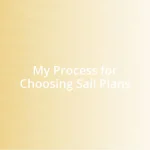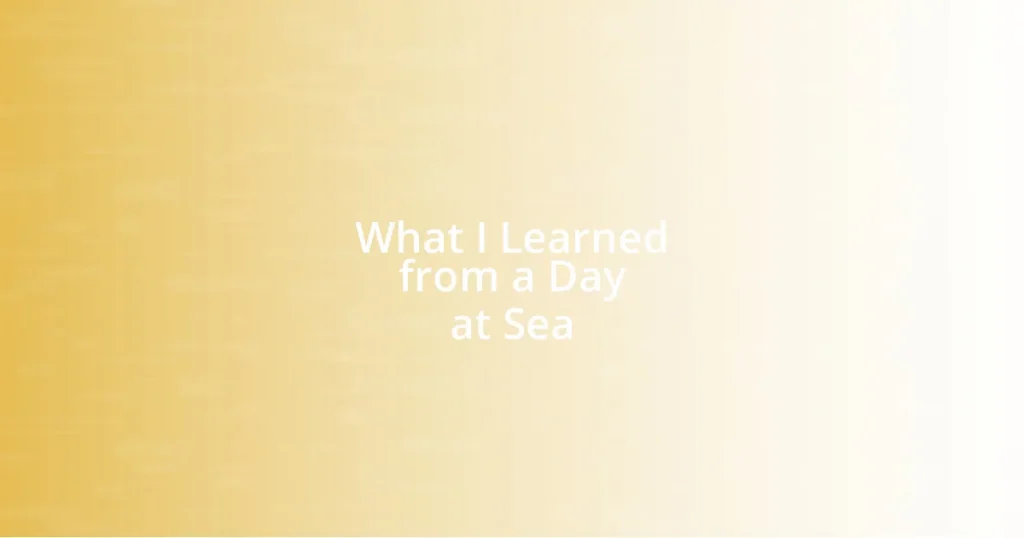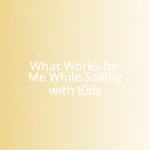Key takeaways:
- Effective teamwork hinges on clear communication, trust, and empowering each crew member’s contributions.
- Adapting to unexpected challenges, such as weather changes or equipment failures, fosters resilience and strengthens camaraderie.
- Personal growth through self-awareness and mindfulness enhances not only sailing skills but also overall life experiences.
- Preparation and open communication are crucial for a successful and safe adventure at sea.

Lessons in Teamwork and Communication
Teamwork at sea tested my ability to connect with others in ways I didn’t expect. I vividly recall a moment when we faced a sudden change in weather; our crew had to switch from leisure mode to crisis mode in an instant. As we quickly communicated our roles, I realized how essential clear directives and understanding each other’s strengths were to navigate that storm effectively. Isn’t it fascinating how a shared goal can sharpen our focus?
During this experience, I found myself reflecting on how communication is not just about talking, but also about listening. One day, while preparing for the evening sail, I noticed how each crew member’s insights enriched our plans. When one suggested a different route to avoid choppy waters, I hesitated at first, but then recognized the value in their perspective. Their idea ultimately led us to a smoother journey, reminding me how vital it is to cultivate an environment where everyone feels empowered to contribute.
I can’t stress enough how trust forms the backbone of effective teamwork. There was a moment when one of our crew members miscalculated a knot while securing our sails, and instead of scolding, we all jumped in to help. This situation transformed into a shared learning experience rather than a blame game, reinforcing our bond. Have you ever noticed how such moments can turn potential conflicts into opportunities for growth? This day taught me that fostering trust not only smooths out the rough patches but also makes the journey more enjoyable for everyone involved.
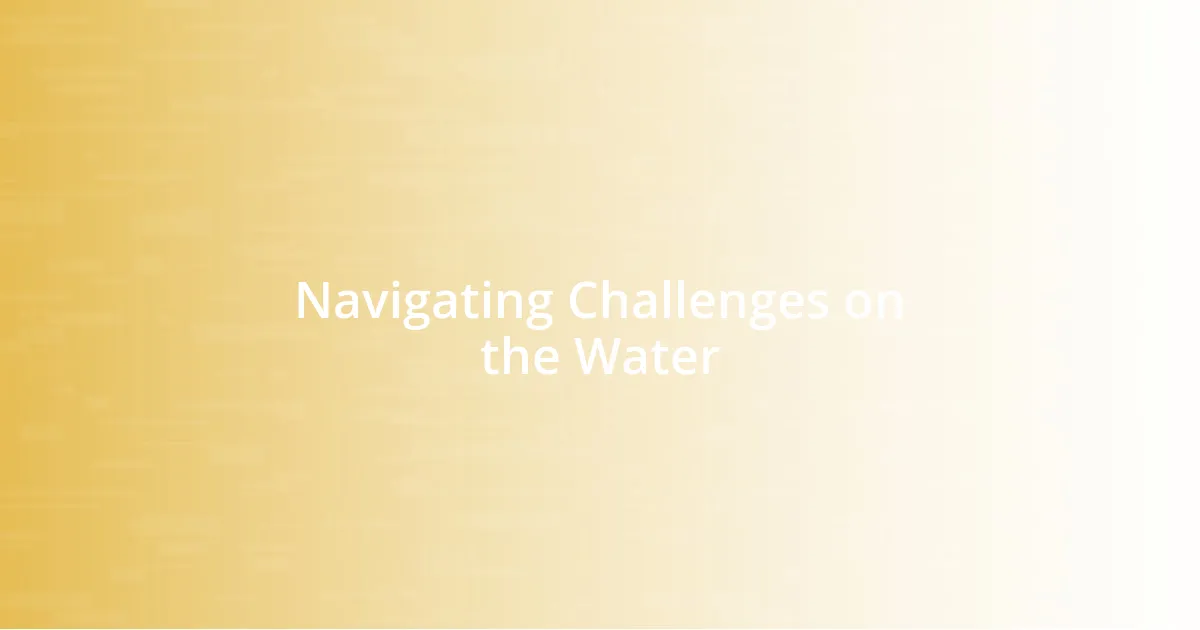
Navigating Challenges on the Water
When navigating the vastness of the ocean, challenges can arise without warning, testing both skills and resilience. I recall a particular moment when our GPS failed unexpectedly while charting our course. We had to rely on traditional navigation methods—reading charts and using a compass. It was exhilarating yet daunting, reminding me that sometimes you need to trust your instincts and revert to the basics when technology falters.
- Adapting quickly to changes in weather conditions
- Dealing with unexpected equipment failures
- Making split-second decisions under pressure
- Maintaining clarity amidst chaos
- Relying on intuition and fundamental skills
- Supporting each other emotionally during tense moments
Facing these challenges together strengthened our camaraderie. It’s heartening to see how shared struggles can foster a deeper connection between individuals, as we all learned to trust each other in times of uncertainty.
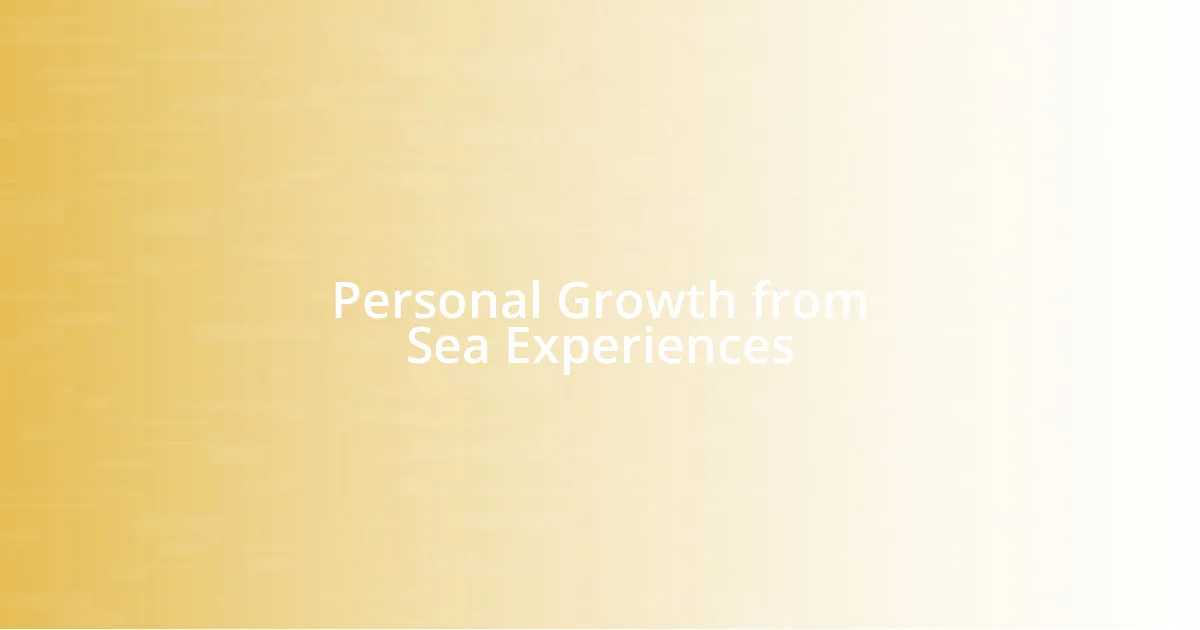
Personal Growth from Sea Experiences
Experiencing a day at sea is not just an adventure; it’s a journey into personal growth. One profound takeaway for me was the lesson in adaptability. There was a moment when we had planned a gorgeous sunset sail, but unforeseen winds shifted our plans drastically. Instead of feeling frustrated, I found that embracing the change allowed me to experience the beauty of the moment in a new light. I realized that flexibility in the face of adversity is crucial, not just on the ocean, but in life itself. Have you ever thought about how your response to unexpected changes can shape your outlook?
Another valuable insight I gained was the importance of self-awareness. While participating in sailing maneuvers, I noticed that I sometimes struggled with certain tasks while excelling in others. This realization led me to appreciate my strengths and recognize my weaknesses without judgment. Sharing this experience with my crew triggered conversations about our individual challenges, and it was comforting to know that we were all on the same learning curve. It made me question: how often do we take the time to reflect on our skills and growth?
Ultimately, a day at sea is not just about navigating waters; it’s about navigating oneself. I discovered the power of mindfulness in those tranquil moments between the waves. Sitting on the deck, feeling the cool breeze, I practiced being present, allowing me to connect with my thoughts and emotions better. That quiet reflection time helped me appreciate the little things—like the sound of the waves or the sky’s changing colors. These moments taught me the vital practice of stepping back and finding peace, a lesson that resonates deeply in our fast-paced lives.
| Aspect | Personal Growth Insight |
|---|---|
| Adaptability | Embracing unexpected changes enhances resilience. |
| Self-awareness | Recognizing strengths and weaknesses fosters personal development. |
| Mindfulness | Practicing presence leads to deeper emotional connections. |
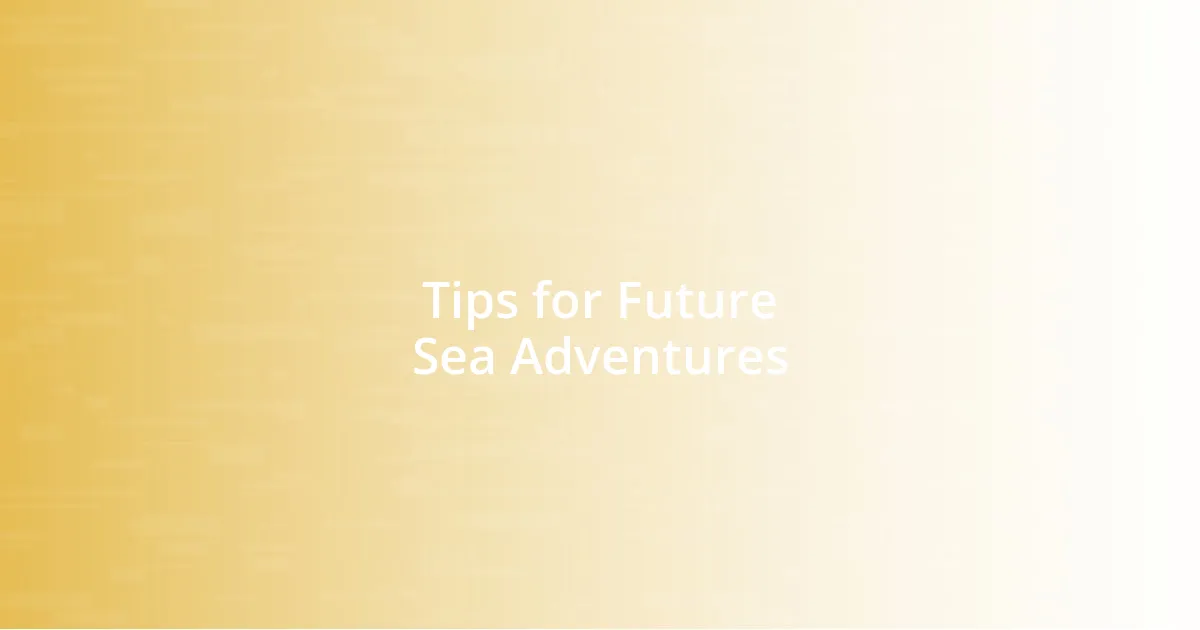
Tips for Future Sea Adventures
Preparing for a future adventure at sea can be as thrilling as the journey itself. One piece of advice I found invaluable is to always check the weather and sea conditions before setting out. On one trip, we ignored the forecasts, and the unexpected swell became an uneasy reminder of how important it is to respect nature’s unpredictability. I wonder: how many times have we taken risks without assessing potential consequences?
Being ready for equipment failures is another critical tip. I learned this the hard way when our anchor got stuck and we had to improvise with makeshift tools to free it. It was a tense moment, but it taught me to keep a toolbox ready and learn basic repairs. Don’t you think being prepared can transform a potentially stressful situation into an opportunity for problem-solving?
Lastly, never underestimate the power of good communication among your crew. I remember instances when simply sharing our thoughts led to better decision-making. There were moments when we disagreed on the best course, but taking the time to listen to each other’s perspectives built a stronger team. How often do we incorporate open dialogues in our planning? I realized that fostering a supportive environment allows everyone to contribute, ultimately making the adventure smoother.








